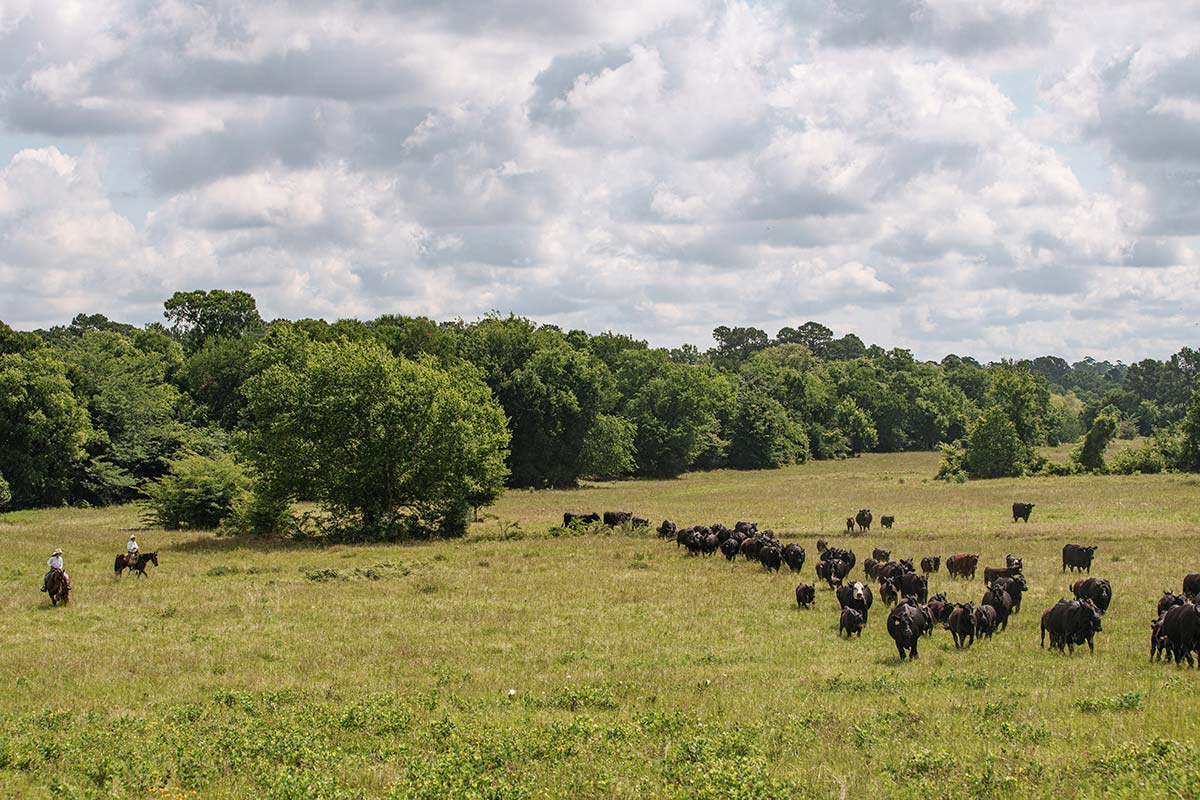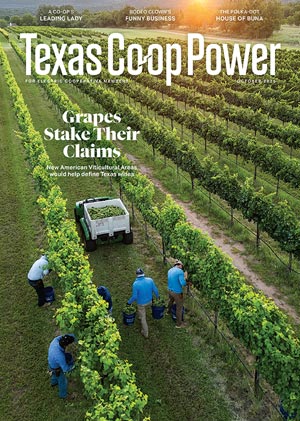Beyond the growing residential developments and crowded freeways, cowboys still work cattle on horseback in Montgomery, Texas.
Luther Winch III resides northwest of Downtown Montgomery with his family where they raise Angus cattle for Winch Beef. He and his wife, Thérèse—both fifth generation ranchers—bought their first piece of rural property, which would later become the company’s headquarters, 25 years ago.
The morning MidSouth’s community relations team visited Winch ranch, the Texas sun was just coming over the trees, its rays peeking through summer foliage. A gentle breeze carried the rustles of movement and beckoned us to a rustic barn. There we found the couple saddling up, a full day’s work ahead for riders and their horses.
According to Mr. Winch, the ranch was—and still is—his sanctuary.
“We bought the first piece of property in 2000 and fell in love with it,” he remembers. “As the population grew, we found ourselves spending so much time at the ranch.”
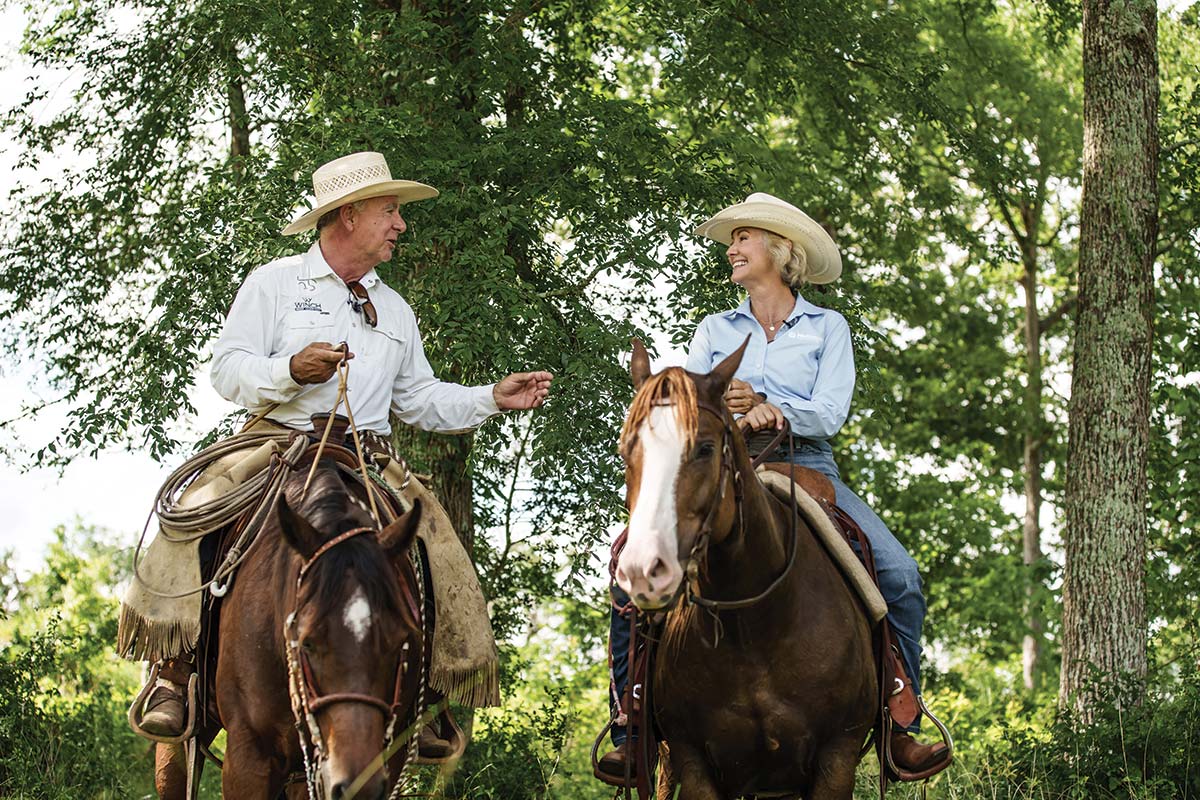
Luther Winch and MidSouth Electric’s Stacey Forgason
Casey Wilson
Back then, Luther would spend some evenings and nearly every weekend at their rural retreat. The quiet farm-to-market road and calming sounds of nature provided respite from his seasoned career in the oil and gas industry.
In 2012, the Winches, with two young sons in tow, left the city life behind and returned to their western heritage. Both Luther and his wife grew up ranching the heel of Louisiana where they still manage land in Pine Island.
Today, the family runs cattle on additional properties in Montgomery and Walker County, a landscape much different than the marshlands where they grew up. Even still, the couple’s rich history as Cajun cattlemen can be found around their Texas property. The “25” brand, inherited from Luther’s grandfather in 2001, marks boots, saddle blankets, spurs and stock trailer.
For ranchers like the Winches, the fast-growing local population presents its own challenges. Loosely considered an outermost suburb of Houston, Montgomery County is growing rapidly, with residential and commercial developments popping up on either side of Highway 105—a stark contrast to the “sleepy” small town long-time residents cling to, proudly proclaiming the birthplace of the Texas flag.
As we rode horseback with Luther and Thérèse across the Hoke property, weaving through impressive cow-calf pairs, the difficulties often involved in acquiring acreage for agricultural production quickly became a topic of conversation. Unlike traditional real estate listings, this property wasn’t showcased on MLS websites. The Hoke family discovered the Winches as potential land buyers through a mutual friend, interviewing Luther and one other candidate to determine who would assume ownership of the property.
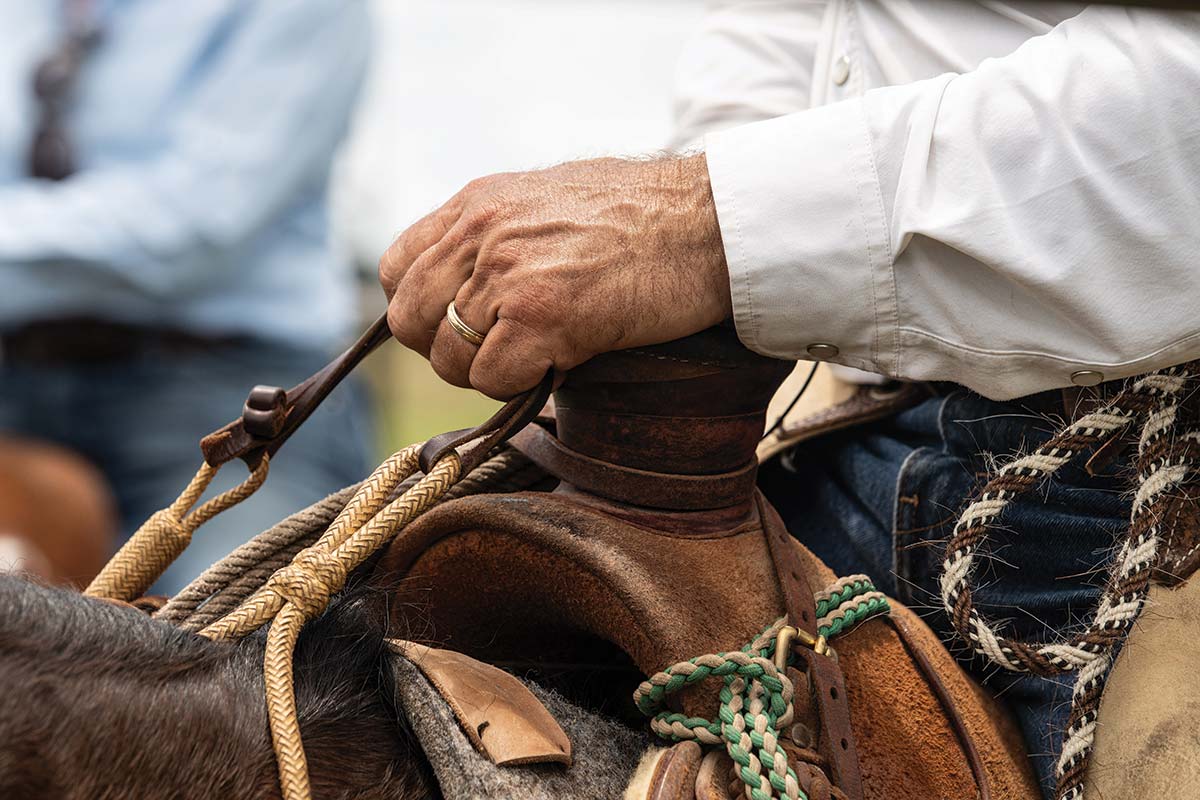
Casey Wilson
“[The previous owner] told me all about this land’s rich history—the Indian mounds and Alligator creek, how his father would gather cattle to ship to Houston. They didn’t want this [land] to be developed or subdivided,” Luther shares. He continues, topping the hill of the old Hoke place on horseback, looking down into the valley where the creek runs.
“So I’m never going to develop it. And guess what? I don’t want to. I want to raise cattle here.”
Luther and Thérèse begin each day in prayer, asking the Lord’s blessing before checking on the pairs, bulls and fat cattle.
At the ranch, cattle are big-bellied and knee deep in green grass. During the heat of the day, they retire to shade under the trees lining Alligator Creek. When necessary, the Winch family gathers and pens the herd slowly to minimize stress and maintain low cortisol levels, which—if heightened—negatively affects beef quality. Finished cattle leave Winch Ranch through loading pens thoughtfully designed to maintain a stress-free environment.
Proven genetics, transparency and good stewardship are top priorities when growing animals for your table. Our morning tour on horseback exemplifies their open-gate policy—an offer extended to any member of the community who wishes to learn more about where food comes from.
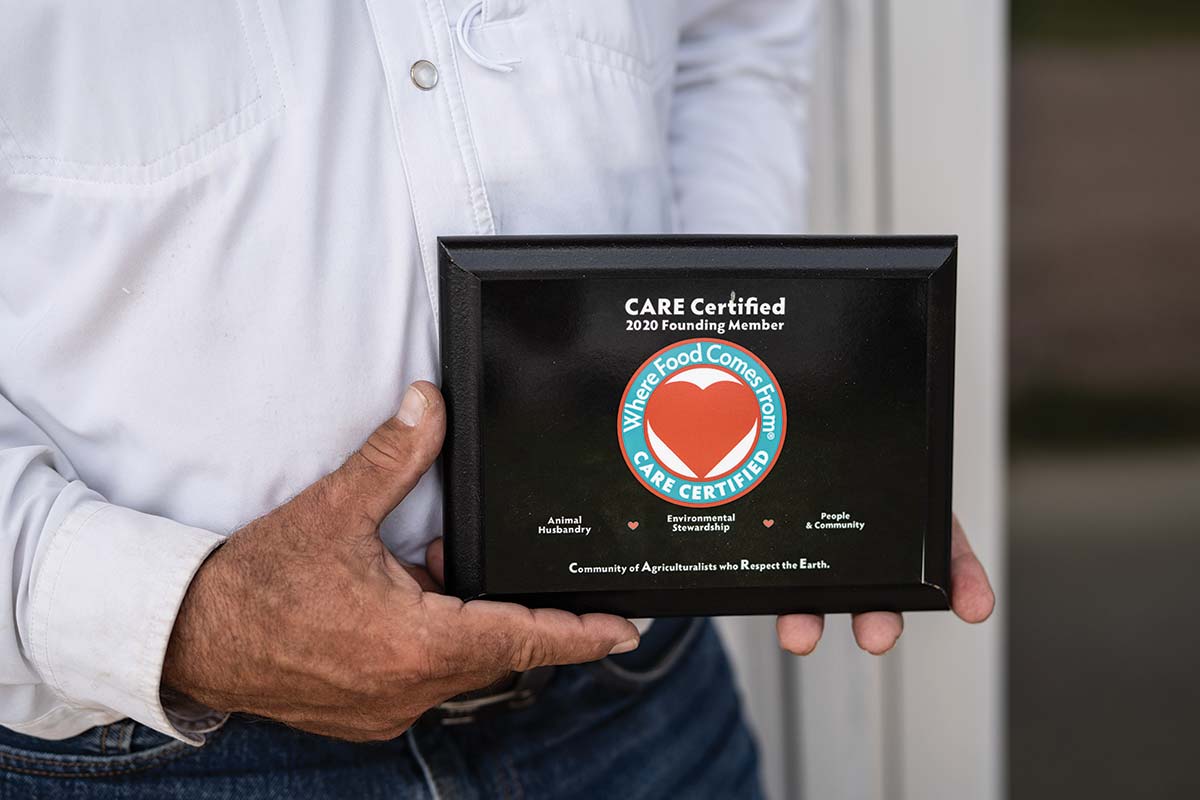
Casey Wilson
We witnessed this firsthand and even saddled up to push the Winch Ranch herd to the front of the property, where shaded working pens awaited. Cows and calves fell into perfect migration as we drove them from the creek bank and over Indian mounds. There was no chaos or shouting amongst cowboys. Even the cattle played their role perfectly, entering the pens in single file, with horses bringing up the rear.
Though Luther Winch left the corporate life behind, he knows good business is driven by consumer satisfaction. He shares it took 10 years of research, trial and error to create a beef product they are proud to share with God’s people.
The bottom line: People care about quality.
Out of respect for animals and consumers , the family ensures their beef is antibiotic free with no added hormones. Winch Beef is a founding member of Community of Agriculturalists who Respect the Earth, a program that sets higher standards for the welfare of cattle, the environment and its caretakers. Every family member is also certified through the Beef Quality Assurance Program, a strict standard practice for ranchers, combining safe animal husbandry and nutritional science to ensure beef cattle are managed properly. This is the type of product you won’t find in grocery stores.
“God put these cattle on this earth for us to raise beef. We’re just the caretakers and we do the very best we can at doing so,” Luther says.
When necessary, Verified Natural Beef producers like the Winches treat injured or ill animals with antibiotics. However, medicated cattle must be separated from the all-natural herd and marked with identifying ear tags of disqualification.
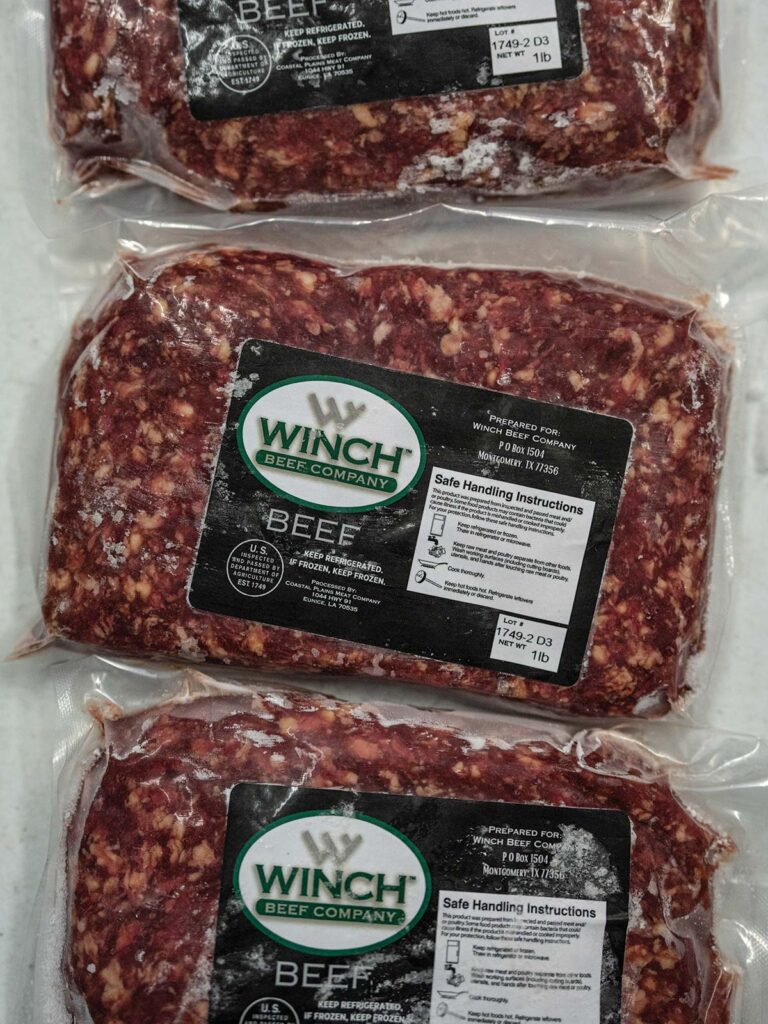
Casey Wilson
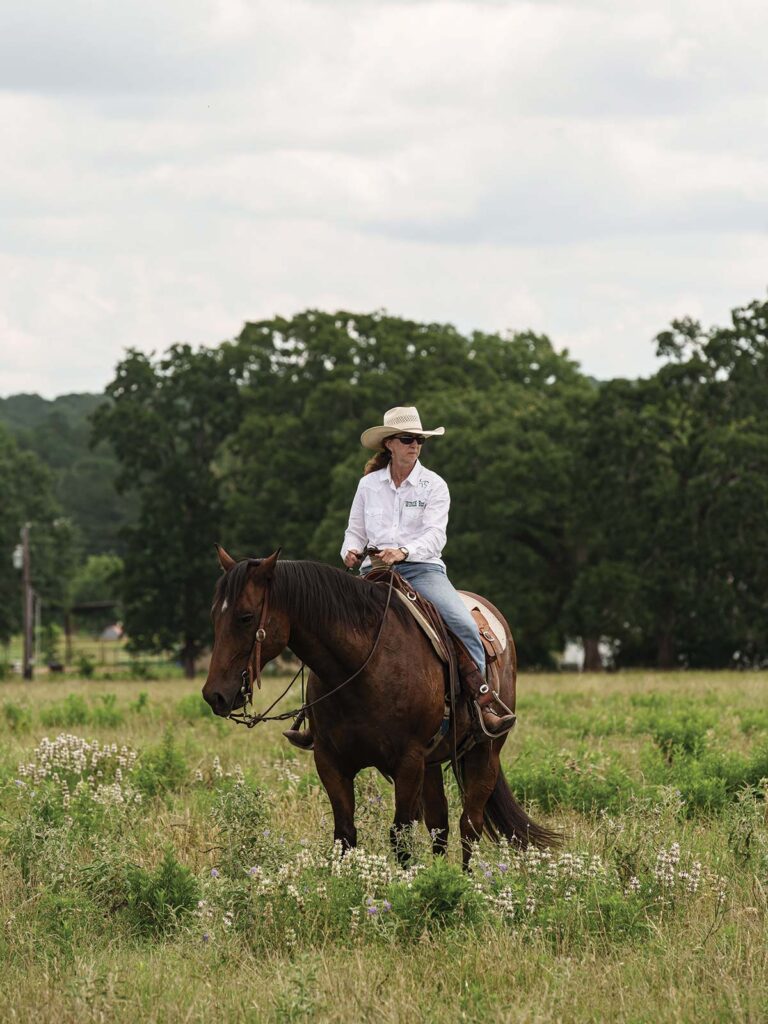
Thérèse Winch
Casey Wilson
“It’s our obligation to provide the best product we can.”
Winch Beef consistently grades high-choice or prime, developing a deeper, richer flavor for the palate. All cattle in the program are harvested by processors hand-picked for quality of service.
“We will go out of our way for a higher quality final product,” he explains.
During our tour of the operation, Thérèse maintained a quiet, yet forceful presence. Mounted atop her bay gelding—its pedigree as impressive as the cowgirl in the saddle—she sorted cattle with precision, performing an intricate dance between horse and herd. After many years in the classroom speaking in front of students, the retired teacher expresses she prefers to let her husband do the talking these days. Obvious skill and work ethic, passed through generations, expose Mrs. Winch as a true-grit cowgirl.
There is a deep respect between the couple, knowing the job can’t be done without the other. They work long hours to ensure animals are looked after and the product they create is superior.
When the family gathers each evening around a homegrown beef meal and reflects on the day, Luther says he envisions the fruits of their labor spreading tables of families just like theirs.
“To imagine a family around the dinner table, having a meal together over Winch Beef, gives me great satisfaction,” he says, emotionally. “This is our calling—It’s why we keep doing what we do.”
After a long day in the summer sun, our team physically fatigued by the heat and humidity, the Winches welcomed us back to the ranch headquarters for a tasting. Luke, the couple’s son, expertly prepared portions of ribeye, sirloin and filet mignon on a grill just outside the storefront stocked with chest freezers containing high-quality beef. Each bite, seasoned simply with salt and pepper, was melt-in-your-mouth tender—we couldn’t get enough.
The family loves what they do and take their God-given roles seriously. Luther reminds us the land and cattle he maintains are not his, or Thérèse’s, but their Lord and Savior’s. And their desire is to share this life with others.
“I don’t plant trees around my borders,” Luther proclaims. “If individuals from the surrounding areas want to come and partake in this beautiful landscape, I want to share it with them.”
When the Winches wrap the day’s work and head indoors, Luther expresses the satisfaction he feels knowing they have followed God’s plan as stewards and agriculturalists.
Every night, as his head hits the pillow next to Thérèse, Luther smiles. He’s tired. A good tired.
